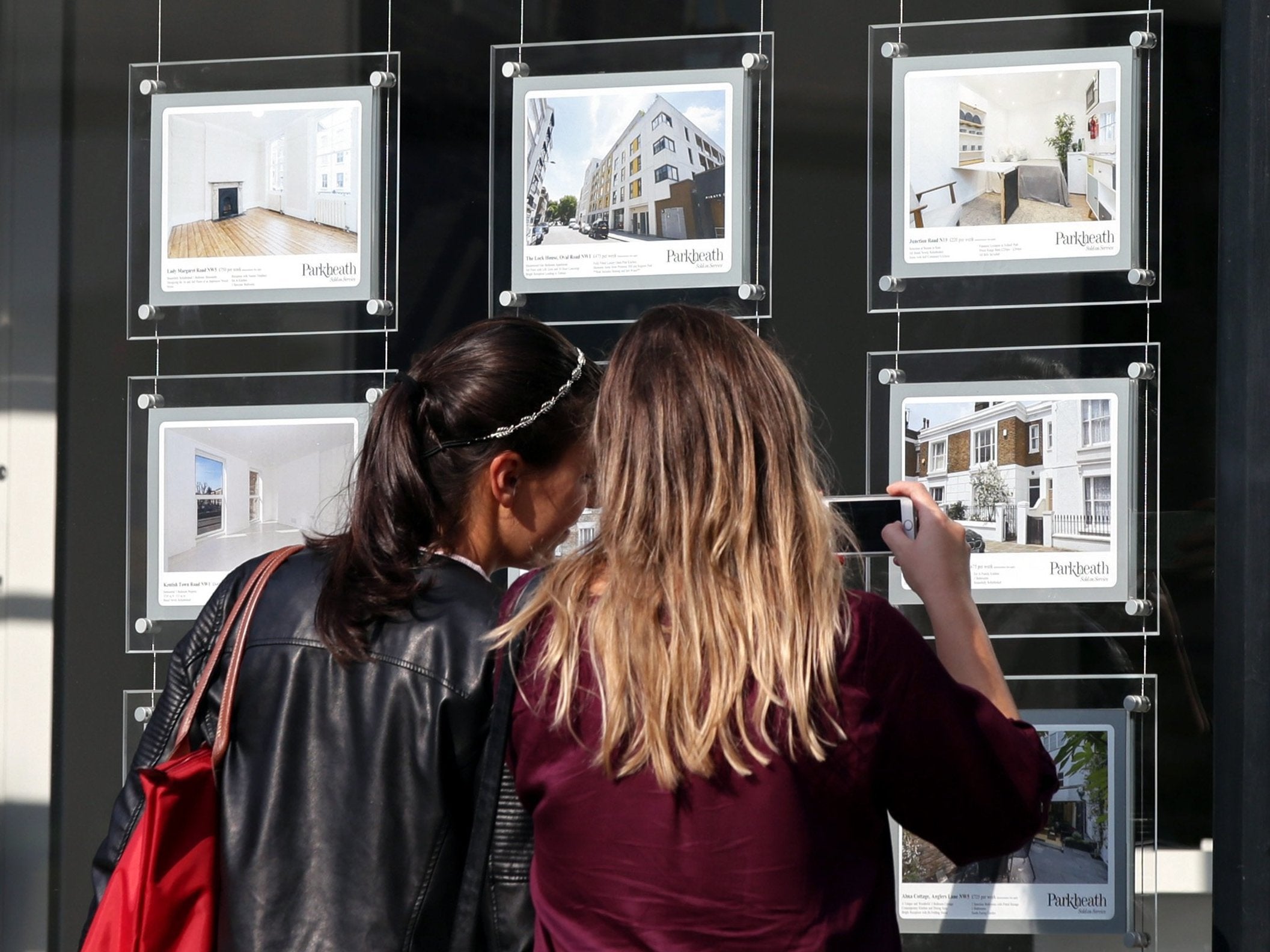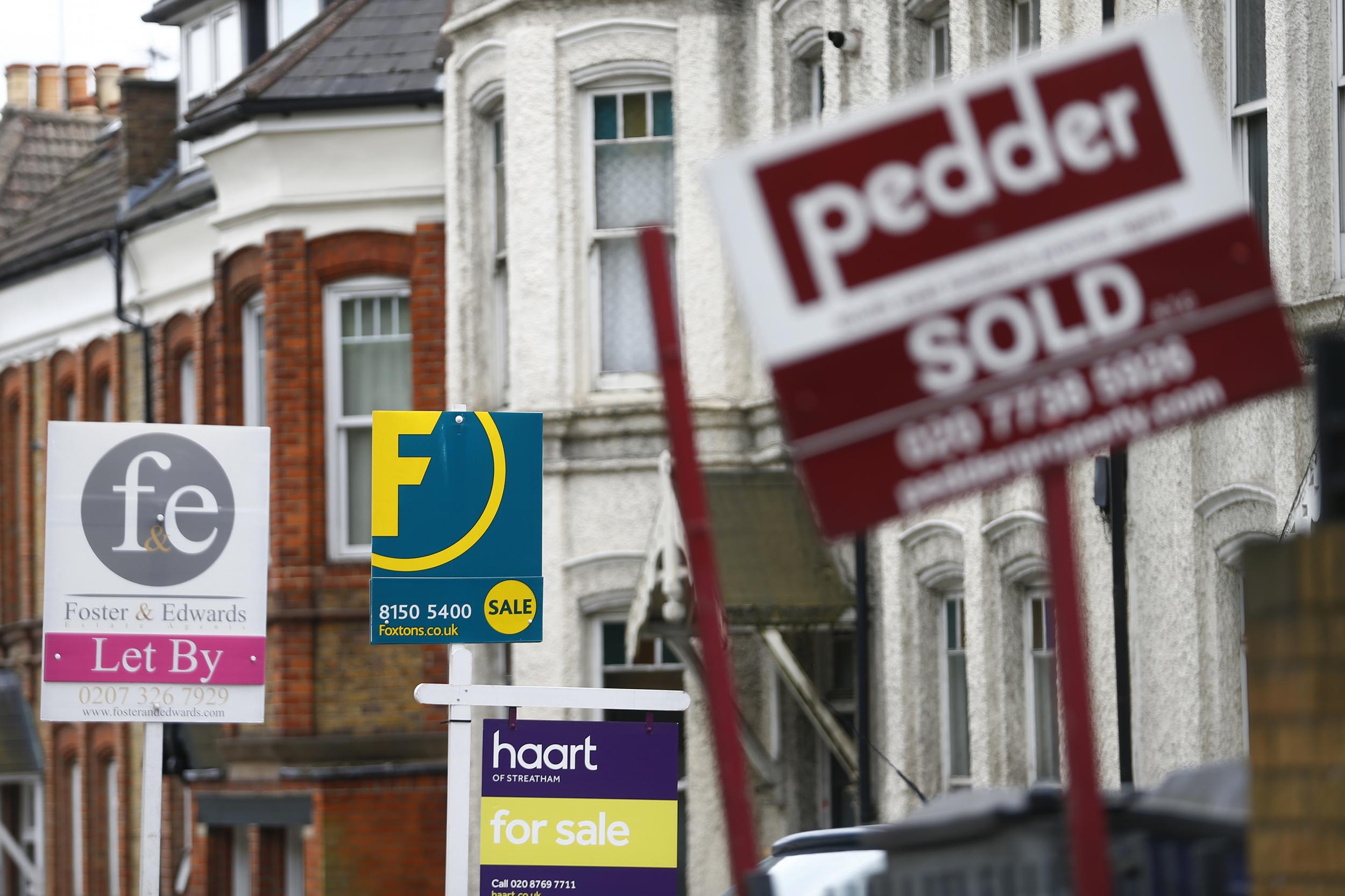The Bank of Mum and Dad shouldn't determine people's ability to own a home
With a 15 per cent deposit on the average home standing at £35,000, while wages have barely risen in 12 years, Britain is more and more a country in which access to inherited wealth is an important determinant of life chances, writes Ben Chapman


Nationwide's decision to cut back on lending to first-time buyers who borrow money from their parents for a deposit is a blow to many young people who feel increasingly pessimistic about their chances of owning a home.
There is nothing to stop the building society from introducing such criteria for its lending. It has said it is only being “prudent” in a time of uncertainty about the economy and house prices.
However, the move highlights a number of structural problems in the UK, caused by decades of policy mistakes which have pushed up house prices in some parts of the country to levels well beyond what is affordable for many people.
The Bank of Mum and Dad gifted or loaned £5bn to children last year, according to estate agency Savills - and 40 per cent of all mortgaged first-time home buyers received financial support from their families. With a 15 per cent deposit on the average UK home standing at £35,000, while wages have barely risen in 12 years, Britain is more and more a country in which access to inherited wealth is an important determinant of life chances.
Millennials - those born between 1981 and the mid 1990s - are half as likely to own a home as Baby Boomers born in the post-war years.
Adults in their mid-30s to mid-40s are three times more likely to rent than they were 20 years ago, while research by the Resolution Foundation forecast that one in three millennials will never own their own home. One in six baby boomers, meanwhile, has a second home.
According to the ONS, the average full-time worker could expect to pay about 7.8 times their annual earnings on purchasing a home, compared with about 3.5 in the early 1990s.
There is a common misconception that this housing crisis is caused by a shortage of construction. The government recently announced sweeping relaxations of planning laws to spur more housebuilding.
This is likely to benefit property developers far more than prospective homeowners and it misunderstands the fundamental nature of an important problem.
Research by the Bank of England found that nearly all rises in average house prices relative to incomes over the past four decades “can be seen as a result of a sustained, dramatic, and consistently unexpected, decline in real interest rates”.

With rates remaining low, banks have been willing to lend more money against the value of homes, pushing prices up.
This leaves the UK exposed to significant falls in house prices when interest rates rise and mortgage debt becomes more expensive.
Average house prices could plunge by one-fifth if there is an unexpected interest rate rise of 1 percentage point which is then is sustained over several years, the Bank of England forecasts.
Cheap debt and rising prices have also handed a vast pile of unearned wealth to those who have enjoyed significant rises in the value of their homes.
A series of policy choices by successive governments have also contributed to the problem.
Right to Buy, introduced by Margaret Thatcher in 1979, was billed as a way to develop a “property-owning democracy”, but the cut-price sell-off of social housing, alongside the failure to replace it has drastically reduced the stock of affordable homes. The Labour government of 1997 to 2010 did little to reverse this trend.
A study by researchers at King's College London found that an influx of billions of pounds flowing into the UK property market through foreign companies has pumped up house price growth by more than a quarter in England and Wales between 1999 and 2014.
It suggests that foreign investment is a significantly larger contributing factor than previously thought towards the crisis.
Successive governments have failed to stem this flow of investors' cash into the UK property market. Meanwhile, home ownership rates have fallen from 73.3 per cent in 2008 to 65 per cent today.
Perhaps the most damaging housing policy of recent years has been Help to Buy. Introduced in 2013 by former chancellor George Osborne, it, has handed government loans of up to 20 per cent of a property's value.
Given that the housing crisis is primarily caused by cheap debt, this policy makes no economic sense, yet it has recently been extended.
It has further pushed up property prices, exacerbating the problem rather than solving it, while generating fat profits for housebuilders and obscene bonuses for their executives. A suspension of stamp duty announced last month could also serve to further boost prices.
A proper debate about how to ensure home-ownership is not determined by privilege and inherited wealth is clearly needed.
But it cannot take place of politicians do not understand the nature of the problem.
Tax reforms could help. Stamp duty is an inefficient tax that discourages property sales. Council tax and business rates are complicated and long overdue an overhaul. Policies such as a Land Value Tax, which would tax the unearned wealth generated by owning property should at least be on the agenda and properly discussed.
Local authorities need to build more social housing and stop letting developers build a tiny proportion of affordable homes in their projects.
More broadly, it would be beneficial to re-evaluate our tendency in the UK to treat residential property as an asset class to be bought and sold for profit rather than as homes to live in.
Given the potential for house prices to fall thanks to a deep recession and rising unemployment, Nationwide is probably sensible to take a more cautious approach to its lending.
But that will come as little comfort to millions of people who see their hopes of ever owning a home disappearing.
Join our commenting forum
Join thought-provoking conversations, follow other Independent readers and see their replies
Comments